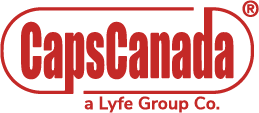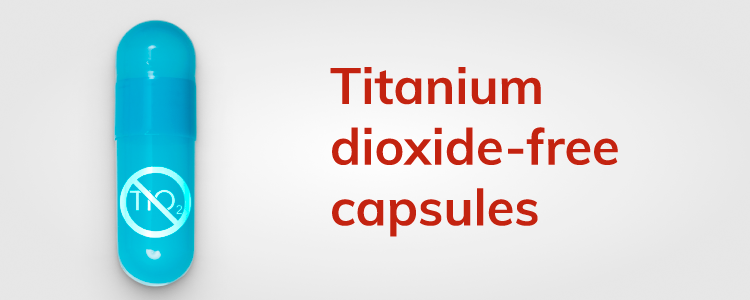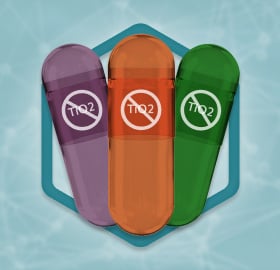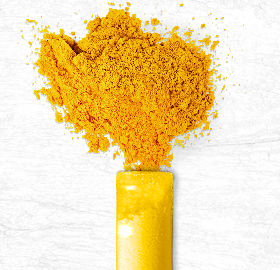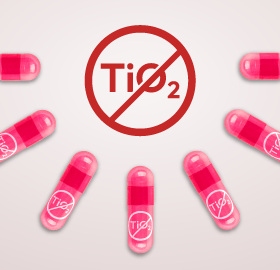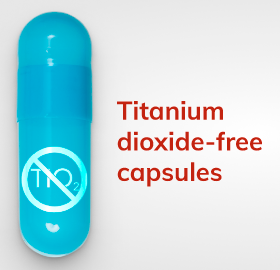The European Food Safety Authority (EFSA) has now classified titanium dioxide (TiO2) as an unsafe food additive. As a result, TiO2 is being banned in Europe in products meant for human consumption, with some of the bans going into effect in Summer 2022:
- Titanium dioxide as a food additive – Following a six-month transitional period that began on February 7, 2022, a ban on the use of TiO2 as a food additive in food and food supplements sold in the EU will go into effect on August 7, 2022.
- Titanium dioxide in medicines – The pharmaceutical industry has been given a bit of a reprieve. Right now, the ban only applies to food. The European Commission has stated that pharmaceutical makers can continue to sell medicines in the European market that contain titanium dioxide for at least another three years. After that you must either find alternatives or justify why titanium dioxide should continue to be used.
Nutraceuticals are being more stringently regulated than pharmaceuticals. This decision was made by the European Medicines Agency in order to avoid medication shortages.
All of this brings up some important questions. What exactly is titanium dioxide? Why is the EFSA banning it? Why isn’t titanium dioxide being banned everywhere? How is TiO2 used in empty capsules? Are TiO2 free capsules available and, if so, how is the quality? What does this new regulatory environment mean for you as a maker of pharmaceutical or nutraceutical products?
Here’s what you need to know…
What is titanium dioxide and how is it used in empty capsules?
Titanium dioxide is a natural metal element that is commonly used as a white pigment in a variety of products, from food and sunscreen to empty capsules and more. In fact, it has been widely used for decades.
When used in empty capsules, TiO2 serves a variety of purposes. Because Titanium dioxide is inert, there is no concern that it will interact with other ingredients. It can also withstand heat and light exposure. TiO2 has excellent opacity and is therefore used as an opacifier to mask the capsule’s contents. It also has ultraviolet-ray (UV) absorption properties, which helps protect the capsule’s fill from degradation by light.
The science behind the EFSA’s regulatory decision
Whether or not TiO2 is safe for human consumption is now a matter of controversy. In January 2017 France’s National Institute of Agronomic Research published a study that linked the ingestion of titanium dioxide to cellular inflammation phenomena, which can lead to cancer. The specific concern cited is that nanoparticles of TiO2 might be able to pass through the protective walls of the lungs, liver and intestines.
This study led to a TiO2 ban in France and, ultimately, to the EFSA’s decision. Interestingly, because the EFSA did not have enough data to determine what a safe daily intake level of TiO2 might be, they decided to simply ban it altogether.
That said, other researchers feel that the data is inconclusive. Regulatory agencies from other governments—including the U.S. Food and Drug Administration (FDA)—have determined that TiO2 does not pose a safety risk. So the ban is not universal.
Keep learning about capsule technology trends...
- Liquid-Filled Capsules: A New Way of Aspirin Delivery brings New Opportunities
- The Green Promise That Pharmaceutical Industry Should Make In 2022
- Halal and Kosher certifications: Their Importance For Your Product Development
Titanium dioxide free HPMC empty capsules are available now
If you are producing supplements for sale to the EU market, switching to TiO2 free capsules is a requirement. Even if you are a pharmaceutical company and therefore covered by the reprieve, if you are selling to the European market, now is a good time to make the switch. Why wait three years when high-quality titanium dioxide free HPMC empty capsules made with natural colorants are readily available now? Show your consumers that you are at the forefront on this issue.
An excellent choice for titanium dioxide free capsules is K-CAPS® HPMC capsules made with natural colorants. Although K-CAPS® are also available with synthetic colorants, the natural colorants options are all titanium dioxide free. Here’s the good news about these TiO2 free capsules:
- Outstanding performance – K-CAPS® performance is not affected by the use of TiO2 free natural colorants. This means that you get empty capsules with the same dissolution profile, stability, strength and shelf life as you would expect with an HPMC capsule. Plus, K-CAPS® are premium quality capsules that are known for their ability to save manufacturers money by reducing capsule-related defects on filling machines. With these TiO2 free capsules you get excellent separation and closing properties as well as capsule-to-tooling fit.
- Masking qualities – Rest assured that you will still be able to hide your capsules’ contents from view.
- “Free of” claims – To support your “clean label” goals, K-CAPS® TiO2 free capsules made with natural colorants are not just free of titanium dioxide and synthetic pigments. They are also starch free, animal product free, BSE free, heavy metal free, non-GMO, vegan registered and Kosher and Halal certified.
That said, from the product quality standpoint there are two things you should know about these TiO2 free capsules, both of which have to do with the colorants and not the empty capsules themselves. First, shades or hues can vary from one batch to the next. This is because natural colorants are plant-based, and the shades or hues of plants can vary. Second, some (but not all) natural colorants will fade when exposed to UV or IR light for periods of time.
What if you do not sell in the EU?
Even if you are not selling your pharmaceutical or nutraceutical products in the EU, it’s a good idea to keep an eye on this market trend. After all, the regulatory agencies of other countries are likely being pressured to reevaluate their stances on whether or not TiO2 poses a safety risk.

